
Extreme reaction
Inbound Troubles, which started to air in Hong Kong one week ago, has caused much controversy. The reactions seem to fall in two extremes. On the one hand, there are numerous complaints from both Hong Kong and mainland audiences who feel the show deepens the conflict. Amid the dispute, its rating has been higher than average these days.
It is reported that as of Wednesday, the Office of the Communication Authority and TVB have received more than 200 complaints including claims that the show has misled the audience, enlarged the contradiction, plagiarized songs, libeled Hong Kong people, beautified mainlanders, and affected the image of Hong Kong as a shopping paradise. Wong Wai-sing even got a call of harassment attacking the serial. As a result, there were rumors that the show might be canceled.
"Can't these audiences understand what I'm trying to express?" asked Wong Cho-lam, the actor who plays Cai and a scriptwriter for the show, on Sina Weibo, in response to the complaints, "While people grumble that TV serials in Hong Kong are not innovative and dare not picture reality, these complainers might kill TV dramas."
The pressure is not only from Hong Kong. The depiction of Cai, who represents mainlanders, displeases many on that side. Some who saw the show online said it denigrates mainlanders by exaggerating their bad habits.
Wong Cho-lam called upon the audience to stay tuned. "Some start to criticize after watching the first episode and quoted words out of context. It will not be late to curse after watching the whole serial," he wrote on Weibo.
"There are exaggerations. Cai can only represent some mainlanders. But it does truly depict some defects of the mainlanders," Shao told the Global Times. She also thinks the reaction of the audience is natural.
Some viewers said it is just a comedy to make fun, so people should keep a spirit of entertainment and not mind the jest. Some praised the act of publicizing bad manners. "Many … are reluctant to reflect on themselves. Lodging complaints cannot bury the truth," posted one netizen on Weibo.
Cultural integration
Wong Wai-sing once told reporters that he had expected this would stir controversy about "defaming," but he didn't mean to intensify the conflict, adding that their starting point was to make a comedy for people to enjoy. In fact, he wants to demonstrate the concept of harmony through it.
"We are not pointing fingers at mainlanders, to say nothing of purposely attacking or offending them," he said, "In contrast, we sometimes are satirizing Hong Kong people. We are all Chinese. But the cultural differences between us are undeniable, which needs time [to run its course]."
He revealed that with time Cai and Ng will develop into good brothers and their affection will show the message of co-existing cultures. The realistic topics as a start are just pavestones for latter plot developments: there will seldom be scenes showing contradictions later.
Even the production team shows the integration of Hong Kong and the mainland. According to Wong, besides himself and Wong Cho-lam, two other team members are from the mainland. "We learn from each other in designing the story. It is a harmonious process."
Wong Cho-lam also explained to the media that exaggeration of the characters is necessary for the pace of a comedy. "We cannot help but offend them a bit," he said, "It is no big deal. Anyway, it will have a happy ending and shows the ties between the two sides."
According to him, as the plot pushes on, the focus will transfer from current events to Cai's pursuit of his dream and his family's farcical distractions. As Cai participates in a talent contest, the show will look more like a musical drama.
Shao told Global Times that, though a comedy, the show could have realistic significance by showing the true side of life. "Looking straight into the problem is the first step to solving it," Shao said, "If the serial can really help both sides realize their defects and learn to put themselves in others' shoes, it will be rather meaningful."



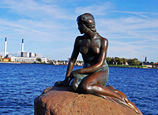
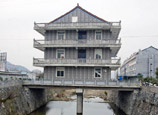
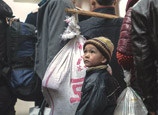
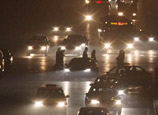
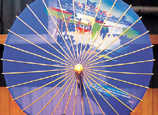
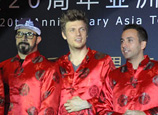








 Time to stop appalling food waste on dining table. "Rich" is not defined by "waste".
Time to stop appalling food waste on dining table. "Rich" is not defined by "waste".


![]()
